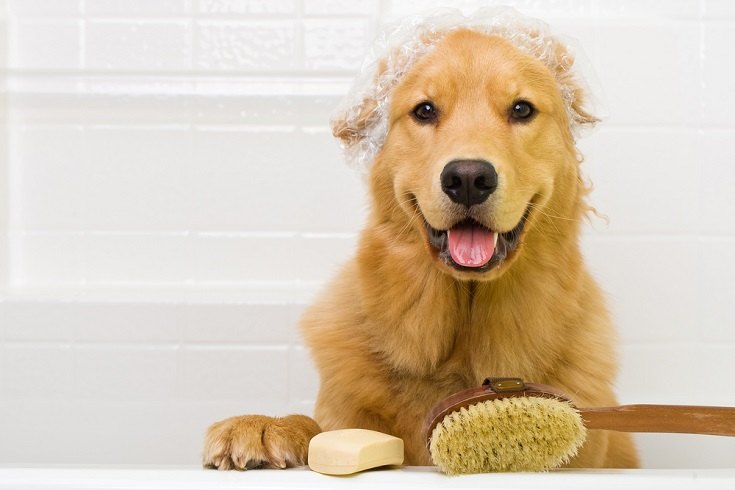When dogs fall into a habit of eating non-food items, they are diagnosed with a condition called pica. … Eating soap qualifies as pica, although it is worth noting that most soaps are non-toxic and will have little negative repercussions for dogs that accidentally consume it.
Gastrointestinal blockage
Soap melts easily, so it’s not usually listed among the things that can cause gastrointestinal blockage in dogs.
However, if your dog has swallowed a big piece of soap whole or is a very small dog, there is still this risk and it shouldn’t be underestimated.
A dog that is experiencing a blockage in the stomach or intestines, on top of vomiting and diarrhea usually shows one or more of these symptoms:
Gastrointestinal blockage requires immediate medical assistance because if untreated it can escalate inflammation of the organs, internal bleeding, necrosis, and even death.
Upon medical examination, your veterinarian will be able to decide the proper course of action to take. In some cases, surgery may be required.
The term ‘soap’ is sometimes used to indicate other home products such as detergents for your dishes or laundry, or bathroom products like shampoo. However, they are absolutely not the same thing.
Some famous brands produce a large variety of different soaps, but not all of them are harmless for your dog.
If your dog ate Dial soap, for example, it will make a great difference if they ate a simple, unscented, non-toxic soap bar or an antibacterial liquid soap.
There are hundreds of different detergents on the market and each of them can be harmful in a different way.
Some may cause damage to the organs (especially the liver and kidneys), others may cause bad chemical burns.
Ingestion of detergents or soaps with additives will require a medical examination as soon as possible.
When in doubt, or if you’re momentarily unable to bring your pet to the veterinarian, you can call the Pet Poison Hotline.
Ingestion of detergents or soaps with additives will require a medical examination as soon as possible.
When in doubt, or if you’re momentarily unable to bring your pet to the veterinarian, you can call the Pet Poison Hotline.
Will Eating Soap Hurt a Dog?
This will depend on the type of soap and how much your dog ate. If your dog ate a little bit of a natural soap bar – without lye or any other toxic ingredients – then symptoms could range from no symptoms at all, to being off their food, drooling more than usual, vomiting, diarrhea, and a tummy ache.
If your dog ate a soap bar with lye, then they may show symptoms caused by the alkaline properties of the lye. The severity of these symptoms will depend on:
Symptoms could include drooling, pawing at their face, vomiting, and tummy ache. This is because alkaline substances have a corrosive effect.
If your dog ate a soap bar containing essential oils, then the severity of symptoms will depend on the same factors, as well as which essential oil is present. For example, tea tree oil can cause vomiting, drooling, hypothermia (low body temperature), a wobbly gait, and depression. Pine oil is often used in soaps for its antibacterial properties. If enough is ingested, it can cause irritation of your dog’s digestive tract; leading to lots of saliva, vomiting (with or without blood), a wobbly gait, weakness, and can potentially damage their liver and kidneys.

What soap is safe for dogs?
All-natural, plant-based, unscented glycerin bars, or ones scented with dog-safe botanical oils, are safest for your pet. Like castile soap, pure glycerin soaps are low-sudsing and don’t strip the natural oils from your pet’s coat.